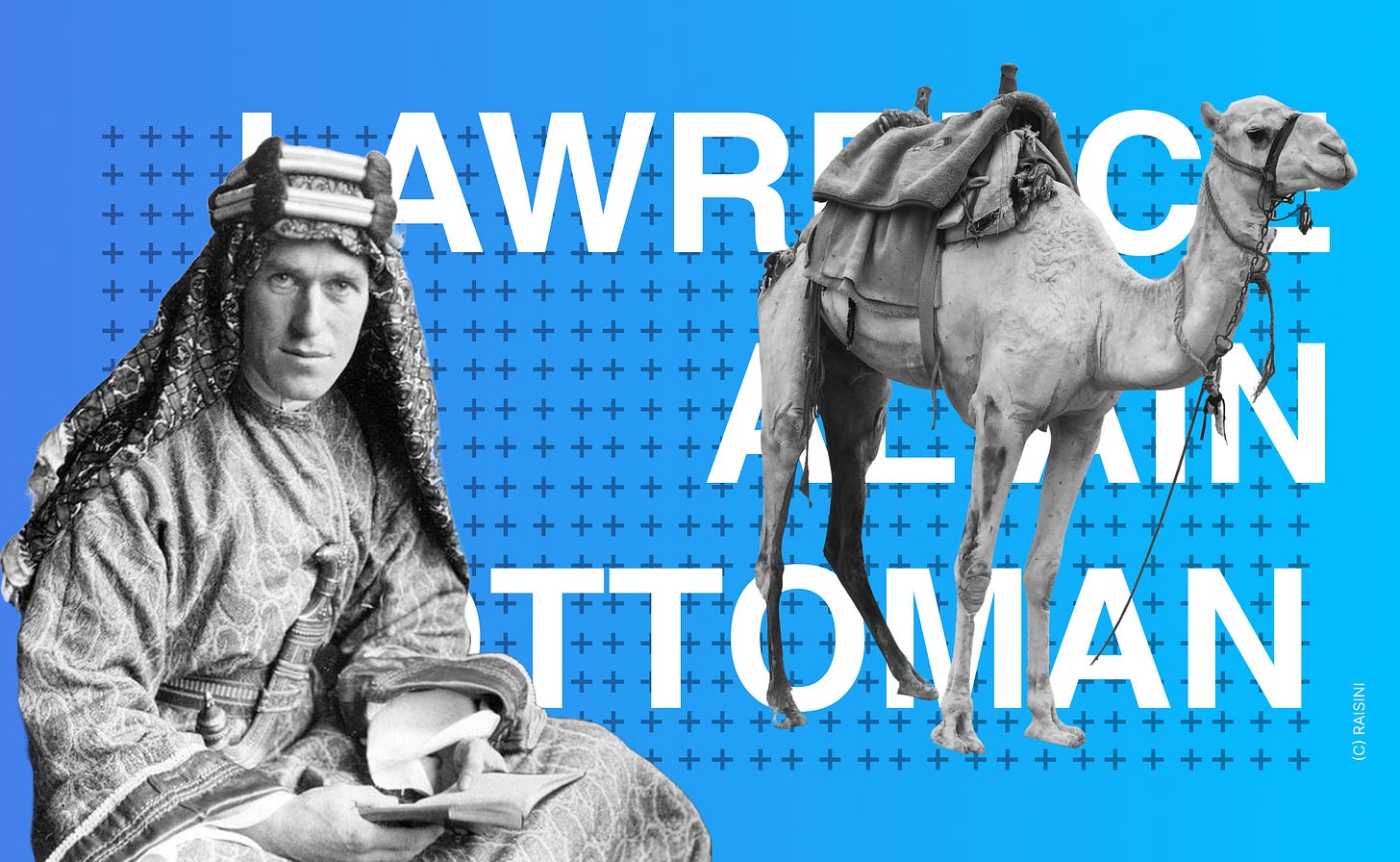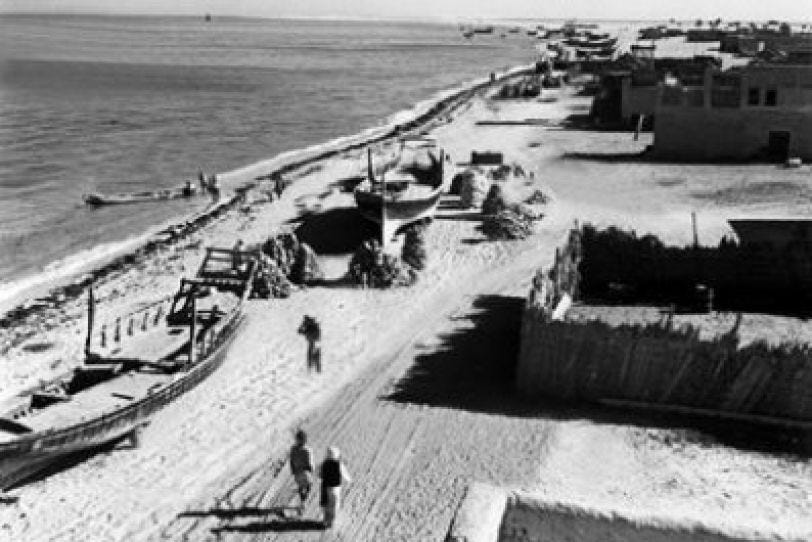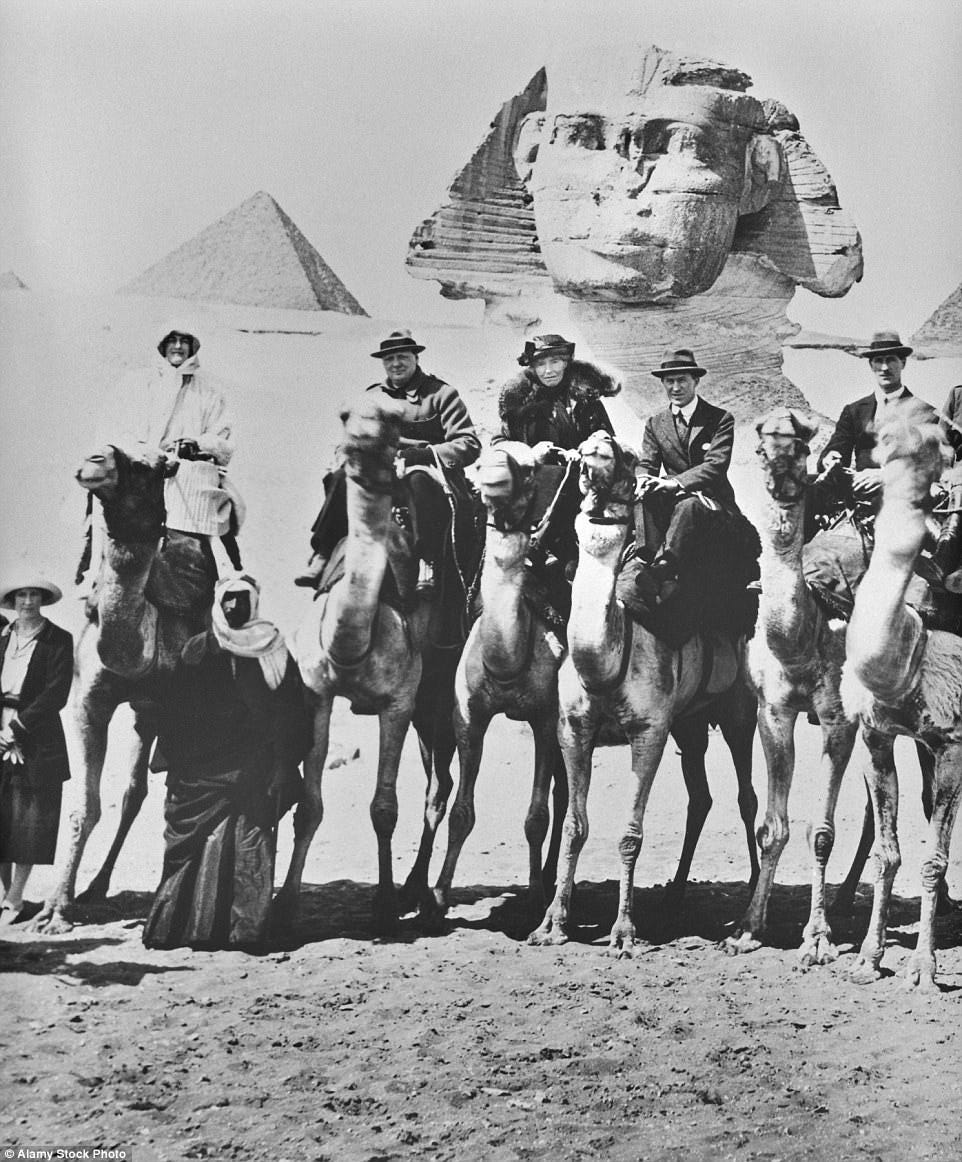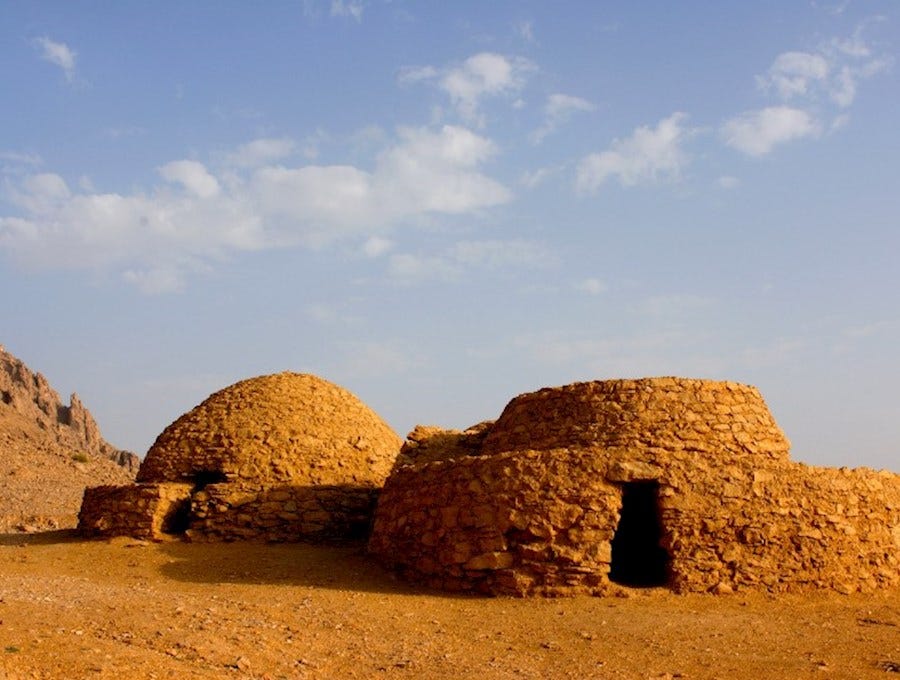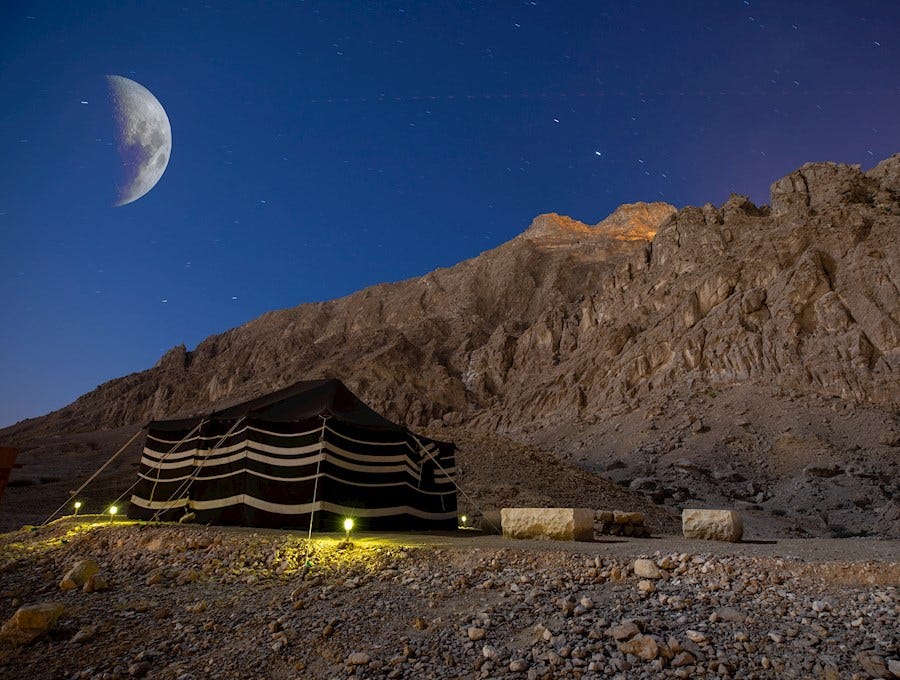How Lawrence of Arabia, Gertrude Bell, and the Fall of the Ottoman Empire made Bedouins of Al Ain Billionaires
Lessons in Courage and Leadership from My 7000-Year-Old Birth City and the Defeat of the Ottoman Empire.
Everyone around the world have heard about the bustling city of Dubai or Abu Dhabi, but very few know about the eastern region of Abu Dhabi, a little city named Al Ain (known as the Al Ain Oasis ). Growing up in a city that was once ruled by several great empires, including the most recent fallen empire of the Ottomans, I developed a deep interest in my family's past. I was captivated by the rich history of Abu Dhabi and its transformation over the centuries. This curiosity led me to explore the empires and rulers who came before the British and Ottomans, and I was determined to learn everything I could about this fascinating part of the world.
As a self-proclaimed Stoic, I have discovered that the principles and practices of this ancient philosophy have been immensely helpful in guiding me through life's highs and lows. Through the teachings of Stoic sages such as Epictetus, Marcus Aurelius, and Seneca, I have been able to build a mindset of resilience, purpose, and inner peace. Stoicism has taught me to concentrate on what is truly important in life and to approach challenges with a sense of purpose and determination.
The true measure of success is not merely accumulating wealth or power, but mastering our own minds and actions. Just like a skilled chef follows a recipe to perfection, we too must diligently study the teachings of the wise and learn from history's failures. Only by mastering these lessons can we achieve greatness and become the architects of our own destiny.
Fortune favors the prepared mind, for success is not a matter of chance, but a product of diligent preparation and strategic execution. As Machiavelli once said,
'He who neglects what is done for what ought to be done, sooner effects his ruin than his preservation.'
I've always been fascinated by the vibrant history and culture of my ancestors. From defending against powerful empires like the Akkadians in 2334 BC to more recent rulers like the Ottomans (1517) and the British (1820), they fought for independence for over 4000 years. The determination and strength in my DNA constantly remind me of their struggles. Today, Abu Dhabi stands as a thriving city, a testament to their courage and vision, and their legacy lives on in its success.
As I look at the modern city that has emerged from the Arabian desert, I can't help but be amazed by the incredible journey that brought us here. What started as a small fishing village has grown into a bustling global hub of commerce and culture, showing the unbreakable spirit of its people.
The stories of my ancestors' strength in the face of adversity have always inspired me to strive for success. This pride in my heritage drove me to learn more about their history and how Abu Dhabi natives achieved their independence and prosperity.
Like most people in Abu Dhabi, my forefathers were Bedouins who traveled across the Middle East and Gulf region for trade. They were brave and adventurous individuals who took on dangerous journeys to survive.
Discovering My Ancestral Roots
I'm always curious about my lineage, eager to understand where my ancestors came from and how they got here. I know my recent ancestors were bedouins who lived in a small oasis called Al Ain (translates to ‘Spring’), in Abu Dhabi's eastern region, but I'm determined to uncover my deeper roots.
My great grandparents were typical Bedouins, raising camels and living off the land. However, they also traded with nearby cities, traveling long distances on camels, and dealing in dates, spices, and textiles. It was a risky business, but it was necessary.
My parents would often tell stories about my ancestors and their success in the trade industry. Their story inspired me greatly, and I have always been fascinated by their tenacity, resourcefulness, and entrepreneurial spirit. This mindset has stayed with me throughout my life, and I have applied it to my own business endeavors.
My grandfather was one of the seasoned traders in the early 1900s, traveling across the Middle East and Gulf for trade, even taking my father with him at the age of 5. He lived and worked in Iraq, Palestine, Jordan, Bahrain, Saudi Arabia, Iran, and India before returning to Abu Dhabi, where he joined the British military, who were training the Abu Dhabi Armed forces in the 50s.
As I grew older, I became more interested in learning about my ancestors' business acumen, studying their trade practices, and the strategies they employed to grow their businesses. Their determination to succeed, even in the face of adversity, has always fascinated and inspired me.
The Bedouins
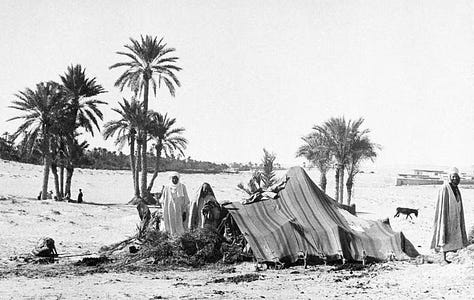
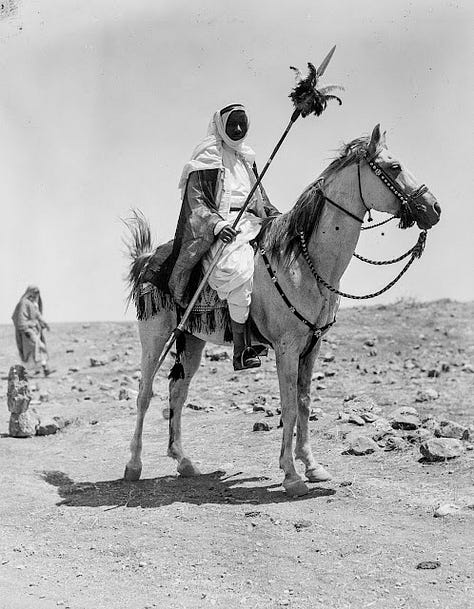
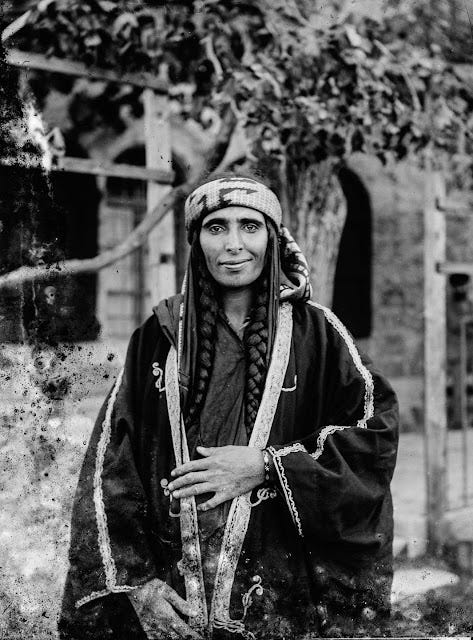
The Bedouins of Abu Dhabi have an incredible history spanning back 4000 years. They have faced many challenges, adapted, and eventually thrived, becoming billionaires in modern times.
In the old days, Bedouins would travel on camels to trade goods such as dates, pearls, and spices across vast stretches of desert, facing countless dangers along the way. Many lost their lives due to harsh weather, lack of water, and food, and attacks by bandits. However, their trading skills and navigation expertise made them highly successful and respected.
The Bedouins of Al Ain city were primarily involved in trading, camel and goat herding. Their life was deeply connected with their animals, relying on them for transportation, food, and clothing. They were also expert navigators who knew how to read the wind and the desert landscape, and they could find water in the most unexpected places.
Despite the harsh living conditions, the Bedouins valued community and hospitality. They welcomed travelers into their tents and shared food and water with them, emphasizing the importance of generosity, hospitality, and bravery.
With the discovery of oil, Abu Dhabi City transformed dramatically with modern infrastructure. Many Bedouins moved to the cities in search of work, and their traditional way of life began to disappear. However, their legacy remains preserved in museums and cultural heritage sites, inspiring generations to come.
Arabian Peninsula
The Arabian Peninsula, also known as Arabia, is a region in Western Asia that holds significant historical and cultural value. The peninsula has been inhabited since prehistoric times, and throughout history, it has been a center for trade and commerce. Today, the Arabian Peninsula comprises several countries, including Saudi Arabia, Kuwait, Bahrain, Qatar, the United Arab Emirates, Oman, and Yemen, each with its unique history and culture.
Lessons Learned from Key Figures of Arabia's Independence from Ottoman And British Empire
As I read about the exploits of T.E. Lawrence, Gertrude Bell, and Wilfred Thesiger, I found myself fascinated by their experiences in the Arabian Peninsula. Their tales of bravery, resilience, and exploration gave me a glimpse of the vastness of the desert and the fascinating culture of its people. As I learned about Lawrence's leadership of Arab rebels during World War I, Bell's involvement in shaping modern-day Iraq and the UAE, and Thesiger's trailblazing expeditions across the Empty Quarter, I felt inspired to embark on my own adventures in life.
What drew me to these adventurers was not just their thrilling escapades, but also their approach to overcoming adversity. Each of them encountered numerous obstacles, whether it was Lawrence's battle with PTSD, Bell's struggle against sexism, or Thesiger's encounters with local tribes. But through sheer grit and a deep respect for the people and places they encountered, they were able to overcome these challenges and achieve their goals. Their stories taught me the importance of perseverance, empathy, and cultural understanding in the face of daunting obstacles.
Lawrence of Arabia
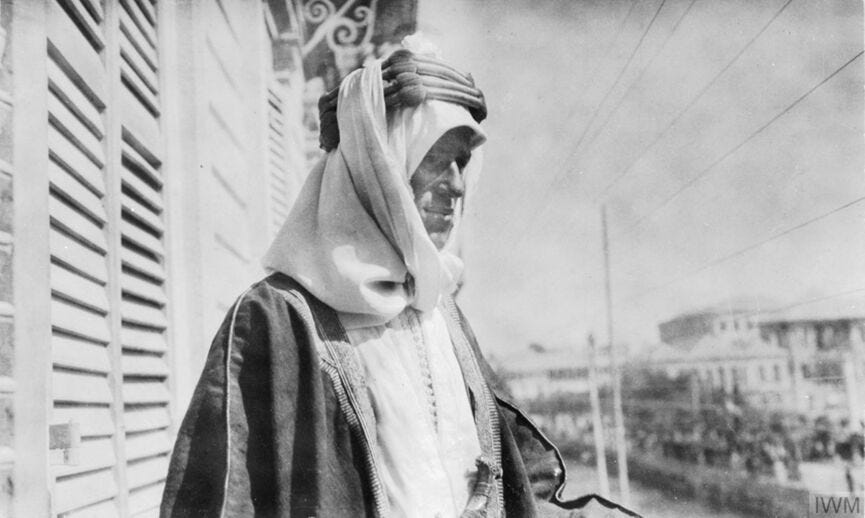
When we think about the Arabian Peninsula, T.E. Lawrence might not be the first person that comes to mind. However, Lawrence, also known as Lawrence of Arabia, played a crucial role in the region's history. Born in Wales in 1888, he was a British archaeologist, military officer, and diplomat who was sent to the Arabian Peninsula during World War I. His mission was to aid the Arab tribes in their fight against the Ottoman Empire and played a crucial part in securing the independence of several Arab countries, including Iraq, Jordan, Saudi Arabia, and the region that now encompasses Abu Dhabi. Lawrence's contributions to the Arab Revolt were significant.
Lessons from Lawrence
What I find most inspiring about Lawrence of Arabia is his ability to overcome adversity. Despite facing torture and the loss of close allies, he refused to give up and continued to push forward, eventually becoming a key figure in the formation of the modern Middle East. His determination serves as a powerful reminder of the importance of perseverance and resilience in achieving success.
Lawrence's story teaches us that success is not only about talent and luck, but also about persistence and determination. We can all learn from Lawrence's example and strive to overcome our own challenges, no matter how difficult they may seem.
Gertrude Bell: ‘Queen of the Desert’
Gertrude Bell was a remarkable woman who played a significant role in the formation of the United Arab Emirates, alongside her friend T.E. Lawrence. Born in 1868, Bell was a writer, explorer, and archaeologist who traveled extensively throughout the Middle East in the early 20th century.
During World War I, Bell's skills as a diplomat were put to use in the creation of the modern state of Iraq. Her work in Iraq brought her into contact with the ruling families of Abu Dhabi and other Emirates, and she soon became a trusted advisor to Sheikh Zayed bin Khalifa, the ruler of Abu Dhabi. Her contribution was instrumental in laying the foundation for the United Arab Emirates that we know today.
Lessons from Gertrude
Gertrude Bell's life is an absolute inspiration! Despite the societal expectations of her time, she never let anything stand in the way of her passions. Gertrude's incredible ability to learn languages and immerse herself in diverse cultures was simply impressive. Moreover, her finesse in navigating through the complex political landscape of her era was truly admirable. It's truly amazing to think that even with the limitations placed on women in her time, she was able to shape the modern Middle East, making it an even more impressive feat.
Learning about Gertrude's life has been personally inspiring for me. Her story has pushed me to pursue my own goals with similar passion and dedication. It reminds me that no matter what obstacles we face, we can always achieve greatness with hard work and determination. Gertrude's life teaches us that by embracing our passions and breaking free from societal limitations, we can make a meaningful difference in the world.

A City of Endurance: 7000 Years of Survival Through 15 Empires
I've always been fascinated by my family's roots and the history of our ancestors. It's amazing to think about the empires that have come and gone in our region, whether they came to conquer or just pass through. Discovering how our past has shaped our present is truly captivating, and I'm always eager to learn more.
The Arabian Peninsula has seen its fair share of empires throughout history. From the Babylonians and Persians to the Greeks, Romans, Parthians, and Sassanians, many have sought to rule or influence the region. Later on, the Ottomans took control of much of the area in the 16th century, including parts of modern-day Saudi Arabia, Yemen, and Oman. In the 19th and early 20th centuries, the British Empire played a significant role in the Gulf region. Today, the Arabian Peninsula is made up of independent countries, each with its unique history and cultural heritage.

Sumerian Empire (4000-2000 BCE)
Akkadian Empire (Mesopotamia) (approx. 2334 BC to 2154 BC)
Babylonian Empire (approx. 1894 BC to 539 BC)
Persian Empire (approx. 539 BC to 330 BC)
Alexander the Great's Empire (approx. 330 BC to 323 BC)
Seleucid Empire (approx. 312 BC to 63 BC)
Parthian Empire (approx. 247 BC to 224 AD)
Sassanian Empire (approx. 224 AD to 651 AD)
Islamic Caliphate (approx. 632 AD to 1258 AD)
Mongol Empire (approx. 1258 AD to 1335 AD)
Timurid Empire (approx. 1370 AD to 1507 AD)
Safavid Empire (approx. 1501 AD to 1736 AD)
Qajar Dynasty (approx. 1785 AD to 1925 AD)
Ottoman Empire (approx. 1517 AD to 1918 AD)
British Empire (approx. 1820s AD to 1971 AD)
Akkadian Empire (2334 BC - 2154 BC)
The Akkadian Empire, which was one of the earliest empires in world history, ruled over a vast territory that encompassed modern-day Iraq, parts of Syria, and parts of Iran from around 2334 BC to 2154 BC. There is evidence to suggest that the Akkadians may have had some impact on the development of the Arabian Peninsula's early civilizations, particularly in terms of language and writing.
Persian Empire (539 - 330 BC)
Persian empires ruled over the Arabian Peninsula at different times in history. The Achaemenid Empire, which was one of the largest and most powerful empires in ancient history, controlled much of the Arabian Peninsula, including parts of modern-day UAE, from 550 to 330 BCE. The Sassanian Empire, another powerful Persian empire, also controlled parts of the Arabian Peninsula, including the eastern coast, from 224 to 651 CE. Both empires had a significant impact on the culture, trade, and political landscape of the region during their respective reigns.
Ottoman Empire ( 1517 - 1918)
As I dug deeper into the history of Abu Dhabi, I became fascinated by the impact of the Ottoman Empire on this region. The Ottomans made their way into the Arabian Peninsula in the early 16th century, starting with the conquest of Yemen in 1517. They continued to expand their territory, including the takeover of Mecca and Medina in the same year, and kept a hold on parts of the Arabian Peninsula until the 1800s.
The Ottoman influence extended beyond politics and geography; it also had a significant cultural impact on the region. Ottoman architecture can still be seen in many of the historic buildings scattered throughout the area. The Turkish language influenced Arabic, which was the language spoken in the region, and the Ottomans shaped Islamic religious practices through their interpretation of Islam.
Following World War I, the Ottomans lost their grip on the region, and Al Ain and Abu Dhabi joined the Trucial States, which were under British protection.
The Ottomans were eventually ousted from Abu Dhabi, thanks in part to British explorers and officials who helped establish a treaty between the British Empire and the ruling sheikhs of Abu Dhabi.
British Empire (1820 - 1971)
Abu Dhabi's history is closely intertwined with that of the British Empire. In the early 1800s, the British recognized the strategic importance of the Persian Gulf and established a trading post in Bahrain.
The sheikhs of Abu Dhabi signed the "General Maritime Treaty" with the British in 1820. In return for protection, the British gained exclusive control over their foreign relations. This treaty marked the beginning of British influence in the region and paved the way for their involvement in Gulf affairs.
During World War I, the British supported Arab tribes in their rebellion against Ottoman rule in the Middle East, including those in Abu Dhabi. T.E. Lawrence, also known as Lawrence of Arabia, played a key role in this effort. The British provided military support and supplies to the Arab fighters.
In the 1950s, oil was discovered in Abu Dhabi, which led to a surge of British investment and expertise in the region. With the help of the British, Abu Dhabi was modernized and transformed into a major oil-producing nation. The newfound wealth from oil exports also allowed for the development of infrastructure and public services, improving the standard of living for the people of Abu Dhabi.
However, in 1971, the British withdrew from the Gulf region as part of their decolonization process, leaving Abu Dhabi and the other sheikhdoms of the Trucial Coast to form the United Arab Emirates (UAE).
Rising from the Sands - Foundations of UAE
As I look around the vibrant city of Abu Dhabi, I'm amazed by the towering skyscrapers and the bustling crowds that surround me. It's difficult to fathom that a few hundred years ago, this place was nothing more than a tiny fishing village on the shores of the Arabian Gulf. However, the evolution of this once unassuming village into a global center of trade and culture is a testament to the strength and ingenuity of the local people, who have shown an exceptional ability to adapt to changing times.
But, it wasn't just the influence of foreign powers that played a significant role in the history of this region. For centuries, Bedouin traders who traveled across the deserts were a crucial part of the economy, exchanging a wide range of commodities from camels and goats to precious metals and textiles. Their role in shaping the region's history and culture cannot be overlooked.
The Fascinating History and Cultural Heritage of Al Ain - A City With 7000 Years of Civilization
Al-Ain, the 'Garden City', has a special place in my heart. It was where my ancestors lived and where I was born. As the largest city in the Eastern Region of Abu Dhabi, Al-Ain has a rich history dating back to 5000 BC. This city played a significant role as a stop on the trade routes between Oman, the Gulf, and the Arabian Peninsula's interior.
Abu Dhabi and Al Ain have a long and storied history, dating back more than 7000 years. The first settlers in the region were likely bedouin tribes who roamed the area around 5,000 BC, hunting and gathering for their sustenance. As these tribes began to settle and develop agricultural practices, the region's fertile oasis allowed them to thrive.
The city's strategic importance attracted the attention of various empires, including the Persians, Greeks, and Romans. By the 7th century AD, Al Ain had become a well-established settlement with a thriving economy and a diverse population due to the Islamic conquest.
Over time, Al Ain was ruled by a succession of local tribes, including the powerful Bani Yas tribe. The Al Nahyan family took control of the city in the 19th century, and it played an important role in the establishment of the United Arab Emirates in 1971.
Today, Al Ain is a bustling modern city with a rich cultural heritage. It is home to numerous historic sites, including the Al Ain Palace Museum, the Al Jahili Fort, and the Hili Archaeological Park. The city is also renowned for its beautiful natural scenery, with the nearby Jebel Hafeet mountain providing stunning panoramic views of the surrounding landscape.
UNESCO World Heritage Sites in Al Ain - Dating 5000 BC
Al-Ain is also known for its UNESCO World Heritage Sites, including the Al Ain Oasis, the largest oasis in the city. Over the years, this oasis has transformed into a network of thousands of date palms, canals, and gardens. It's a symbol of resilience and adaptability, much like the Bedouins who once lived there.
Al Ain Oasis
The Al Ain Oasis, which has been continuously inhabited for over 4000 years, has been recognized as a UNESCO World Heritage site due to its importance as an agricultural site and cultural landscape. The oasis contains archaeological sites that provide insight into the history of settlement and agriculture in the region.
One of the most fascinating thing in the Oasis the ancient falaj irrigation system which draws water from underground wells, Among the shady plantations of date palm, also known as the tree of life for the Bedouin, visitors can explore and appreciate the significance of this essential resource that provided food, shelter, and firewood for generations.
Hili Archaeological Park

The Hili Archaeological Park in Al Ain is a UNESCO World Heritage Site that contains numerous Bronze Age tombs, as well as the remains of a falaj irrigation system and a pre-Islamic tomb dating back to the 3rd millennium BCE. Similarly, the Jebel Hafeet Tombs near Al Ain date back to the Umm Al Nar period (2500-2000 BCE) and provide evidence of a sophisticated ancient society.
Hafit Tombs
The Hafit Tombs are Bronze Age tombs are located on the eastern side of Al Ain and date back to 3200-3000 BC. They are circular stone structures and were used to bury people from the Bronze Age.
Jebel Hafit Desert Park
Jebel Hafit Desert Park is part of one of the Cultural Sites of Al Ain which form the United Arab Emirates’ first UNESCO World Heritage Site. The park is part of the Hafit site, recognised by UNESCO for its Outstanding Universal Value, with its sites providing “exceptional testimony to the development of successive prehistoric cultures in a desert region, from the Neolithic to the Iron Age”
Bida Bint Saud
Bida Bint Saud is a prehistoric site that dates back to the 3rd millennium BC. It includes tombs, settlements, and agricultural structures.
From Camel Herders to Billionaires
The Bedouins' success story is a remarkable example of how a community can transform itself through adaptability and innovation. The discovery of oil in Abu Dhabi was a turning point for their community, and they seized the opportunity to invest in their infrastructure, education, and healthcare systems. As a result, they have diversified their economy and established themselves as leaders in various industries.
The Bedouins' expertise in trade and entrepreneurship, combined with their commitment to innovation, has allowed them to remain successful over time. They recognized early on that the wealth from oil was not never-ending, and they took measures to ensure their financial security. The creation of the Abu Dhabi Investment Authority (ADIA) in 1976 was a significant step in this direction. Today, ADIA is one of the world's largest sovereign funds, with assets worth billions of dollars.
At the forefront of this transformation was Sheikh Zayed bin Sultan Al Nahyan, the founding father of the United Arab Emirates. He led the seven emirates into a fast-changing world with vision, wisdom, and courage, and he is remembered as Zayed the Innovator. Under his leadership, the UAE has become a global hub for trade, tourism, and innovation.

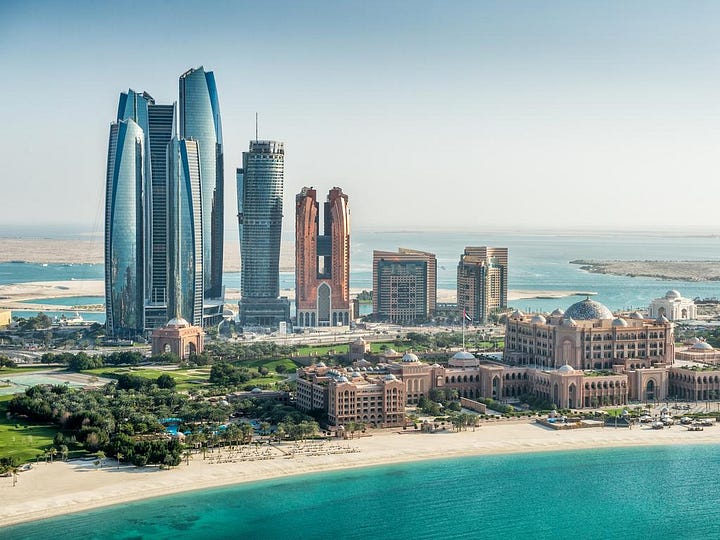
The Bedouins of Abu Dhabi have come a long way since their days as nomadic tribes, and their success story is an inspiration to many. They have built some of the world's most iconic landmarks, including the Burj Khalifa and the Emirates Palace, and their entrepreneurial spirit continues to drive their economy forward. Their resilience and adaptability have helped them overcome numerous challenges, and they remain committed to building a brighter future for themselves and future generations.
Lessons From My Ancestors History
Studying the history of the Arabian Peninsula over the past 7000 years has taught me many valuable lessons that i implement in my everyday life. From the rise and fall of powerful empires to the influence of renowned figures such as Lawrence of Arabia, Gertrude Bell, and Wilfred Thesiger, i learnt how history and historical events can teach us much about a region's past and how it has shaped the modern-day UAE. The resilience and determination of our ancestors, who fought against powerful empires such as the Akkadians, Ottomans, and British, serves as a constant reminder of the importance of perseverance and a strong sense of national identity.
Persistence pays off: The history of Abu Dhabi shows that perseverance leads to success. The Bedouins and their leaders did not give up even in the face of adversity, and that persistence ultimately led to their success. This is a lesson that can be applied to any aspect of life, whether it's in business or personal pursuits.
Embrace diversity: The Bedouin tribes embraced diversity and united to form a country. They had their own unique cultures and traditions, but they were able to come together to form a unified country. Embracing diversity can help to broaden your horizons, provide different perspectives, and ultimately lead to better outcomes.
Learning from the past: Studying history provides valuable insights into the present and future. In business and in life, it's important to study the past to avoid pitfalls.
Diplomacy is key: The roles that Lawrence of Arabia and Gertrude Bell played in the history of Abu Dhabi demonstrate the importance of diplomacy. Whether it's in business or personal relationships, diplomacy can help to bridge gaps and find common ground.
Have a vision: The Bedouins had a vision for their future, which motivated their actions and led to success. In business and in life, having a clear vision can help to guide your decisions, motivate your actions, and ultimately lead to success.
Resilience: The Bedouins overcame challenges by being resilient and adapting to their environment. This lesson can be applied to life and business by being resilient in the face of adversity and not giving up when things get tough.
Resourcefulness: The Bedouins have learned to make the most of their limited resources. This lesson can be applied to business by learning to make the most of what you have and being resourceful in finding solutions to problems.
Hospitality: The Bedouins are known for their hospitality. They have a tradition of welcoming strangers and making them feel at home. This lesson can be applied to life and business by treating others with kindness and respect, and creating a welcoming environment for customers and clients.
Creativity: The Bedouins have developed many creative solutions to the challenges they face in the desert. They have invented new tools and techniques for survival. This lesson can be applied to business by being creative in finding new solutions and approaches to problems.
Connection to nature: The Bedouins had a deep connection to nature and respected the environment, which can be applied to health, wellness, and sustainability in business.
The tales of my Bedouin forefathers' success in the trade industry have left an indelible mark on me. Their unyielding spirit, inventiveness, and business acumen have served as a beacon of hope in my personal and professional life. As a result, I am honored to follow in their footsteps and strive for excellence in my own ventures. Their legacy continues to spur me on to chase my dreams and work arduously to reach my objectives.
Share this story to a friend
If you enjoyed this story, share it with a friend and share your thoughts and questions in the Chat and ill be happy to answer.
See you next week,
RAISINI
👉🏻 Connect on LinkedIn - LEONIDAS RAISINI
👉🏻 Listen to my music - RAISINI
👉🏻 New Website - www.LeonidasRaisini.com
Founding Member
You can also become a founding member, where you will get a 15 Minutes consultation call with me, have access to super exclusive stories including access to my new Music before others, meet in person (if we are in the same city), invite to our events. All for $150 per year. [This is also a great option if you happen to have, say, an employer-sponsored reading or education budget.]
Copyright RAISINI 2024. Any illegal reproduction of this content will result in immediate legal action.



